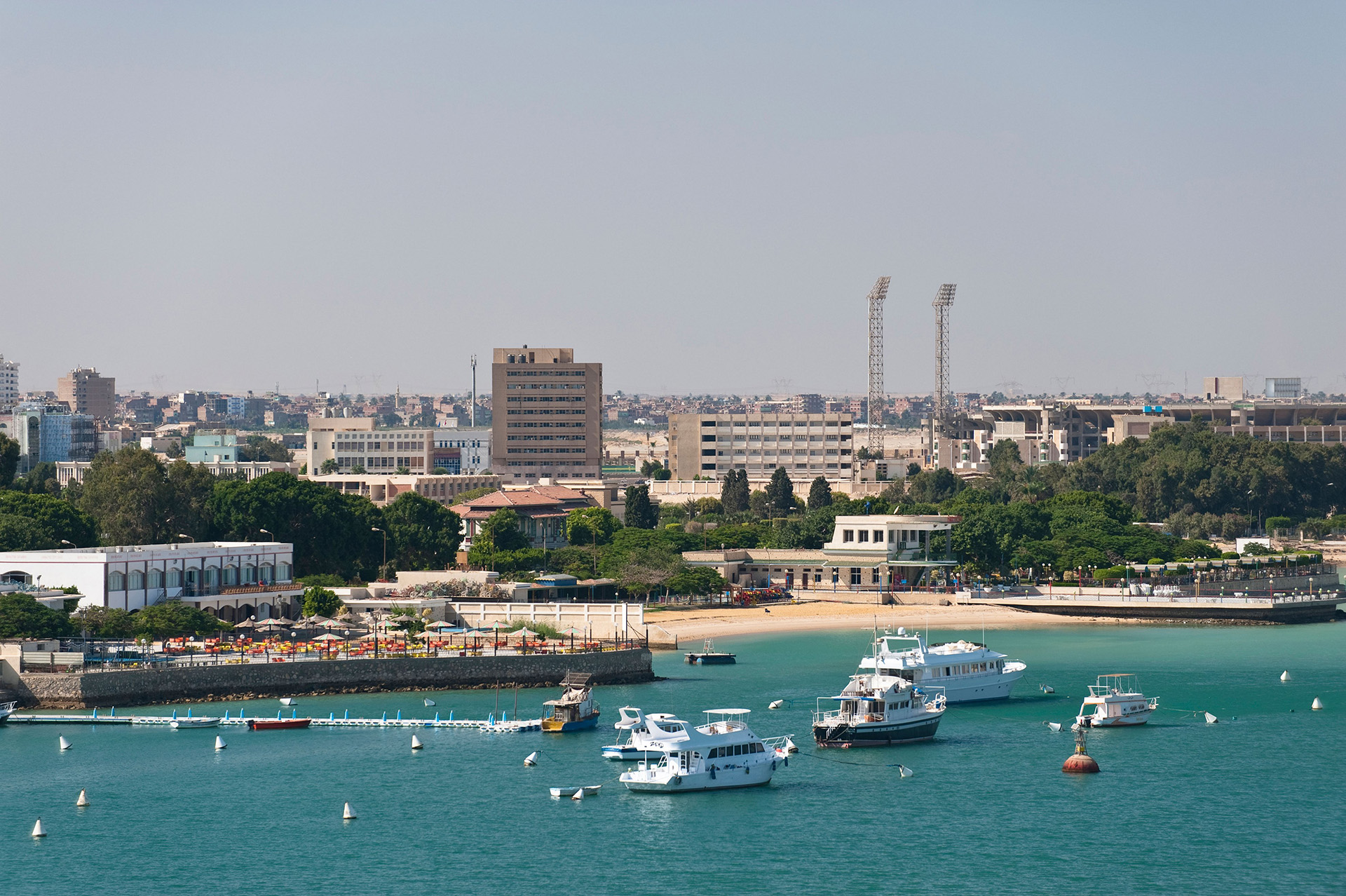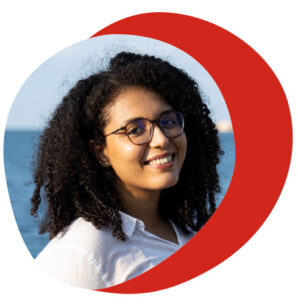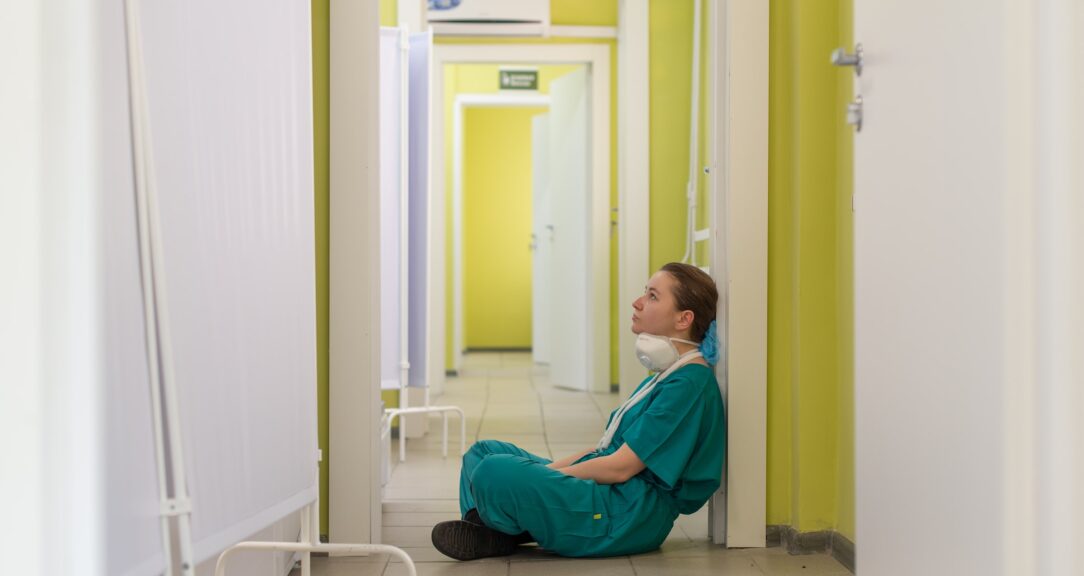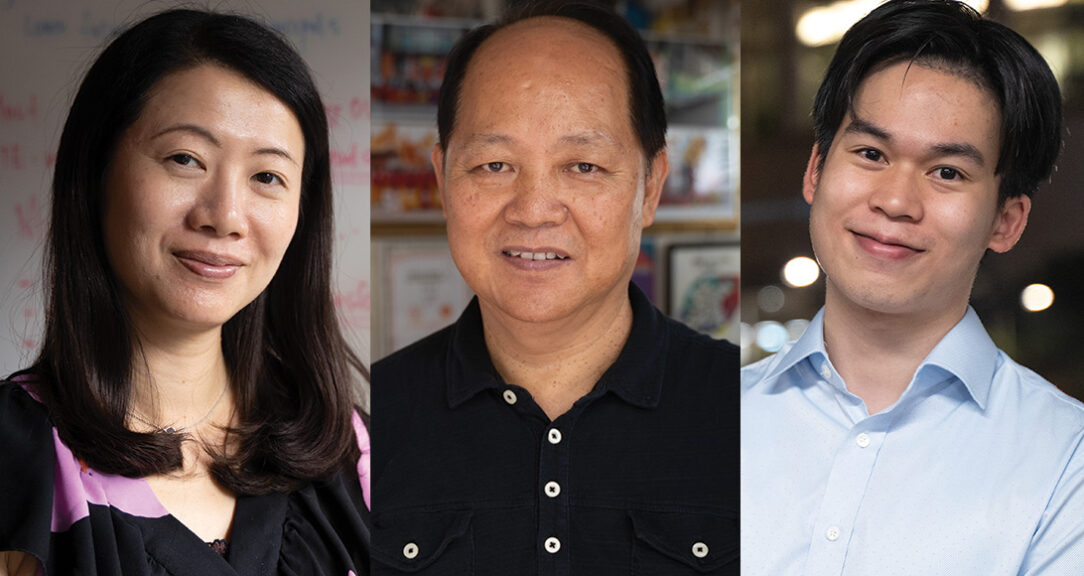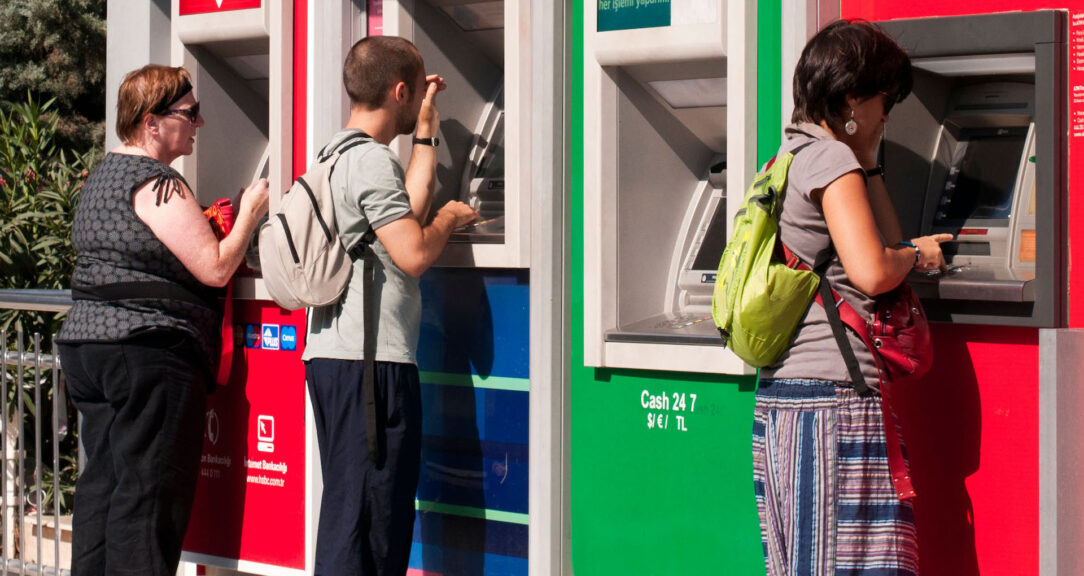Suez is one of Egypt’s ancient port cities dating back to the Pharaonic era. Going by different names over the centuries, Suez is nestled at the closest meeting point between the Mediterranean and Red seas, making it an important trading center since ancient times for the Greeks, Romans and Ottomans.
However, the city’s modern rise started with the opening of the Suez Canal in 1869. The 193-kilometer canal is one of the world’s most vital waterways connecting Europe and Asia, conveying 12% of all international trade, with the city of Suez located at its southern entrance on the Red Sea. In 2021, the canal generated a record $6.3 billion in revenue, with about 20,700 ships carrying 1.3 billion tons of goods.
The canal’s value contributed to conflicts among Egypt, Great Britain, France and Israel, which left the city of Suez in ruins. Its residents weathered attacks after the canal’s nationalization in 1956 and during fighting between 1967 and 1973, steadfastly rebuilding their houses by the mid-1970s. Today, Suez is home to about 774,000 residents, many of whom work in shipping and trade, fishing and manufacturing. We met six of them to learn more about their jobs, paychecks and future plans.
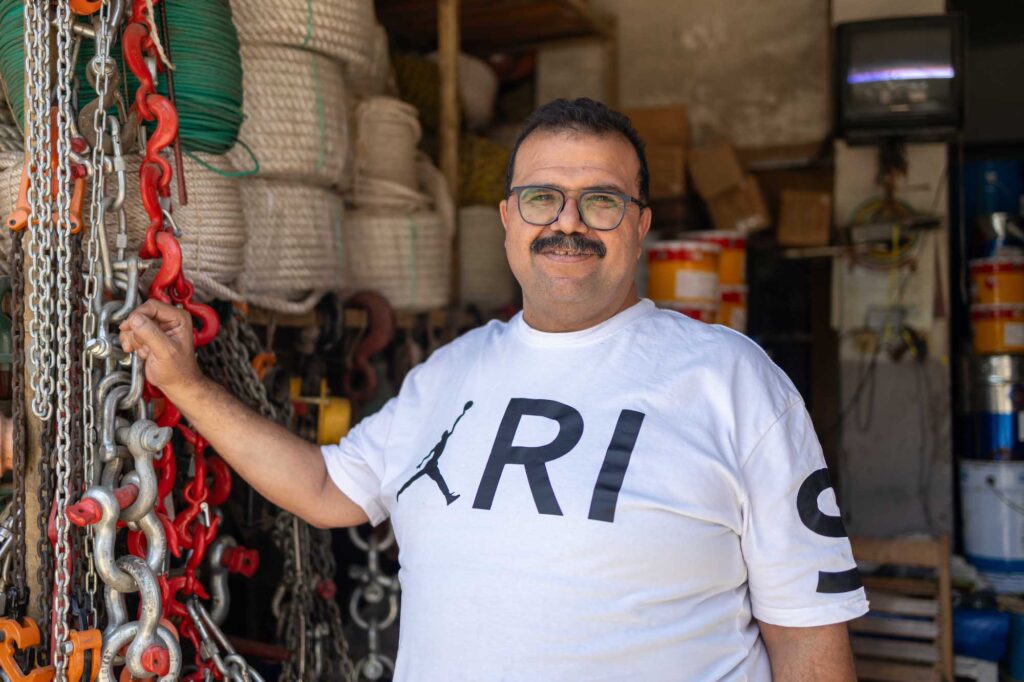
Mohamed Badran, 53
Salvage trader
Our profession has existed since the opening of the Suez Canal. Vessels transiting the canal usually have lots of stock gear and solid waste on board, which they sell to us in packages. We sort it and keep whatever we can sell as used gear to the local fishermen. The rest we sell to scrap traders.
I fell in love with this ship chandler profession when I was 12 years old, as I used to help in my father’s used ship-equipment store. He would give me 5 EGP or 10 EGP per day depending on how satisfied he was with my performance. I always saved that money, and after five years or so, I managed to raise 3,000 EGP ($100), and I handled it as great wealth.
My effort was paying off. I began considering starting my own business and opened my own used ship-equipment store in 1994. Despite selling the ship equipment at half the original price, the recent Egyptian pound devaluation greatly affected us. We buy the ship waste in U.S. dollars, and its value is increasing. So if, for example, I’m selling a 1 kg anchor for $1, it would still be expensive for the customer. But a new 1 kg anchor would cost $6 or $7 on average.
Still, I cherish this profession as it runs in specific Suez families. We sometimes get antique pieces that would be 50 or 60 years old, which I hugely value. Besides, we, as traders, are usually looking after each other. For example, if I have a missing object, I can take it from another trader and pay for it when I sell it. We stand together because we never have all the needed parts for our customers.
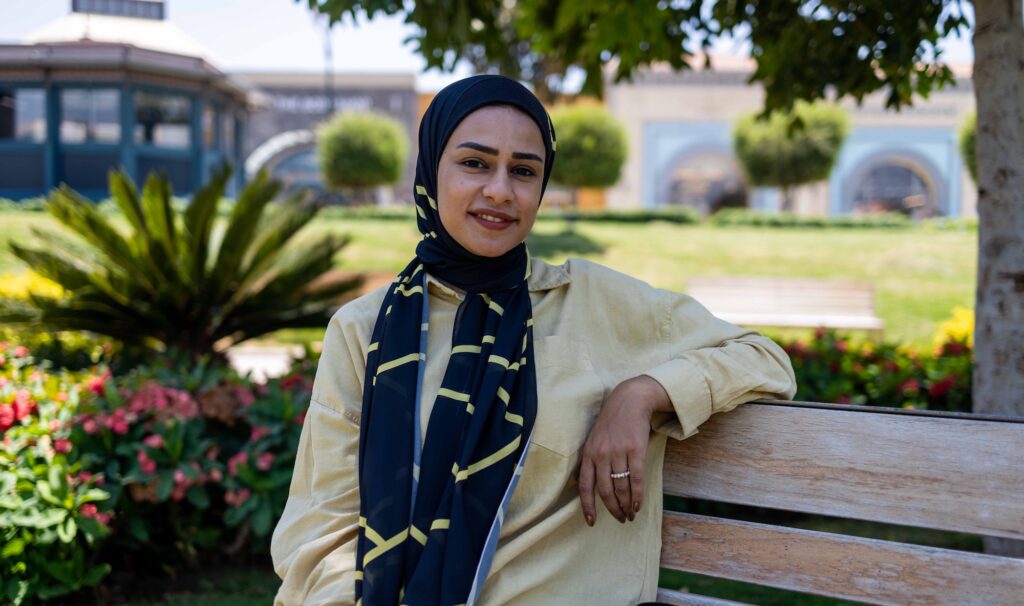
Rana Mohamed, 32
Architect at a petroleum company
I got hired for the first time at the petroleum company after finishing my bachelor’s studies in architecture in August 2013. I still work there, as the company is one of the oldest here in Suez, and many of our residents work in the petroleum sector.
I feel like I belong to this place. This is where I make my living and where my father and grandfather worked. The company dates back to British colonization in the early 20th century. It is so exciting to renovate or maintain any of our buildings. I feel like I’m working in a historical site, as many of the company’s buildings were built by the British.
My very first salary was 800 EGP ($26) per month. I was so happy when I received it; I celebrated by giving my younger brother and sister 200 EGP ($6.50) each, in addition to buying some presents for the house.
The only time I felt I was making the best of the money I earned was during Covid-19. The government decided that any mother with a child under 6 could stay home and receive her salary as usual. My son was 4 years old, so I stayed home and took all my paychecks as usual. That money helped me pay for a down payment for a new car, buy a gold ring and save some money as we didn’t go out much, and our spending was only on our basic needs.
I can’t plan long-term with my salary. I take it with one hand and pay for my car and any other expense installments with the other hand. I currently end up with about 2,000 EGP ($65) each month, and spend most of it on our house expenses.
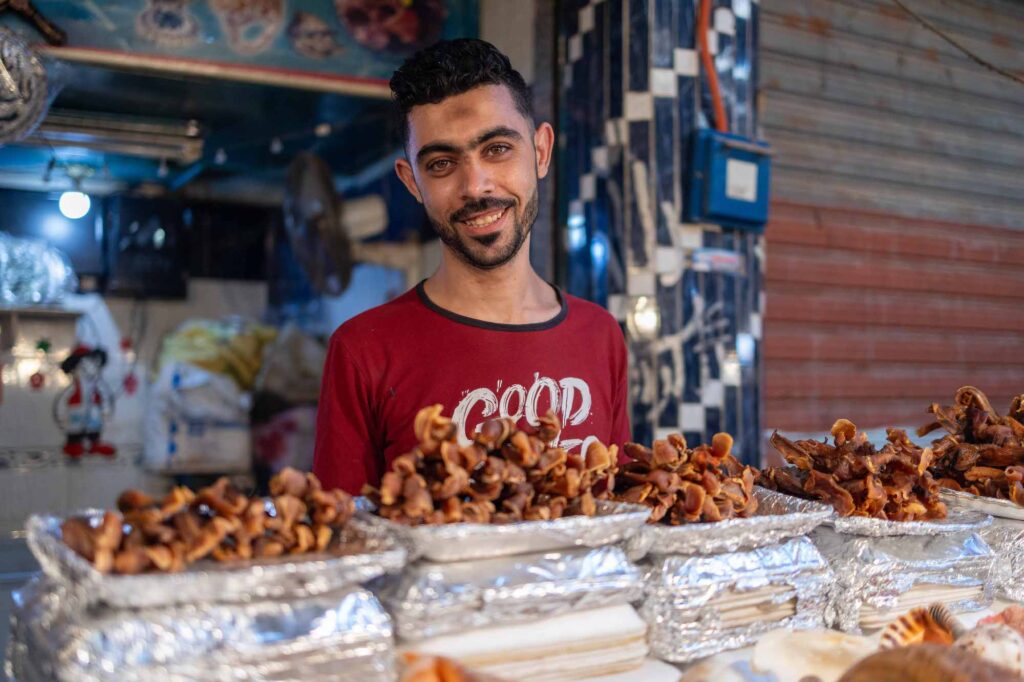
Mohamed Ramadan, 27
Seafood seller
I have been working here for 13 years. I needed to work when I was 14 years old, and a relative brought me to this shop where we prepare seafood that you can only find here in Suez, like oysters and cockles that grow in the Red Sea. I started by helping around the place. Then, I gained the shop owner’s trust, learned to prepare the mollusks, and eventually started selling our products to the customers.
My first salary was 20 EGP ($0.65) per day. I would give my mother 10 or 15 pounds and keep the rest for myself. I remember taking a bonus back then that made a huge difference for me. We once had a busy day with customers, and I got 300 EGP ($10) for the first time at once. It was so exciting, and I paid for my bike installments with the money.
This job depends on the person’s sincerity, honesty and commitment. When we get the seafood from the fishermen, we need to immediately clean, boil and prepare them as the weather is usually hot here, and they can get spoiled very easily. I love my job, as I feel happy when I see our customers satisfied, and it makes me feel that I’m feeding my newborn son Halal money.
I currently get paid weekly. I use the paycheck of the first two weeks of the month for my household expenses. I use the money from the other two weeks to pay the rent and my share of the cooperative savings I’m participating in.
My income usually increases during the fishing season, from September to February. I used this increase for the past two years to pay for my marriage loans. And now that I’m done with it, I’m waiting for the season to start saving for the down payment on my future flat.
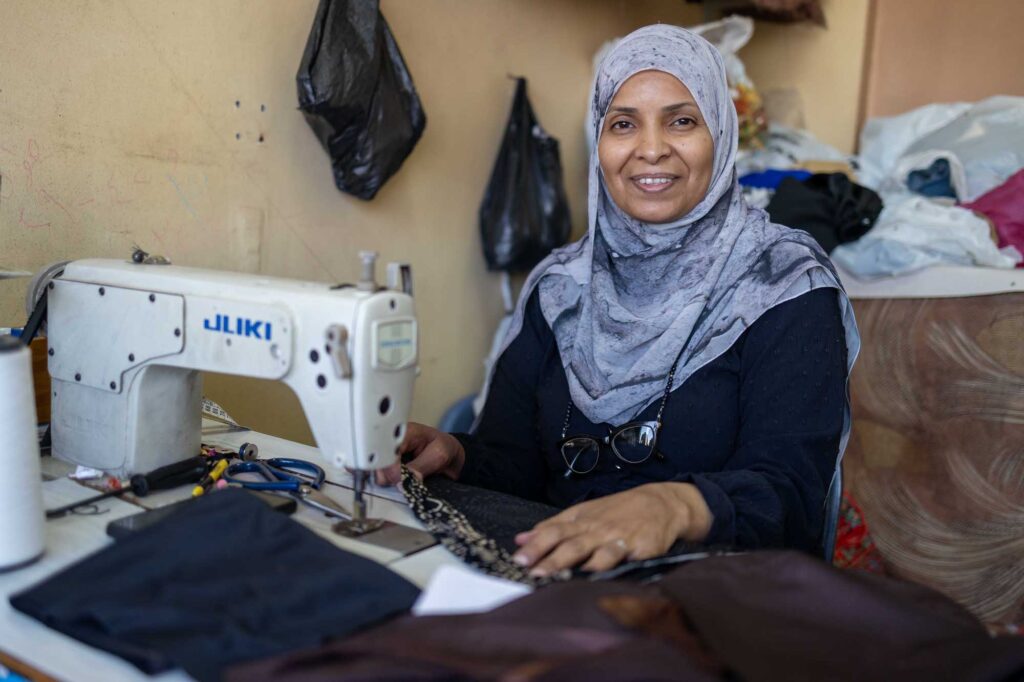
Amal Abdullah, 49
Dressmaker
My first job was long ago; I don’t remember exactly when, but I was so young back then. I was a rice packaging worker in a rice mill here in Suez, and my paycheck was something nominal, around 60 to 80 EGP ($2 to $2.50) per week.
I was thrilled when I got my first salary, as I felt like I earned it. I remember going out on payday with my colleagues to eat hawawshi, a traditional Egyptian dish, in our most popular neighborhood, Arba’een, and hanging out for a bit before going home.
I started my sewing career a year after that in a clothing factory. It was during the 1990s, and our paychecks were so low. But when I left the job and took the pension payout, it was the biggest money I ever got, and I bought my mother a new fridge.
I got married and stayed home for a few years, until I had to work again to help my husband with the household expenses. I worked in different places and gave sewing classes until my friend, Lobna, opened this atelier about three years ago.
Things have been going amazingly since then. We usually split the clothes-making profits. I was shy at the beginning, but now I socialize with the customers and enjoy the company.
All of my pieces are special to me. When I see a dress or a blouse looking good on a customer, I forget the exhaustion of the job. It is not easy at all, and I practice it depending only on my talent. I wish I had more time to watch tutorials and learn more, and I want the atelier to grow and have more returning customers.
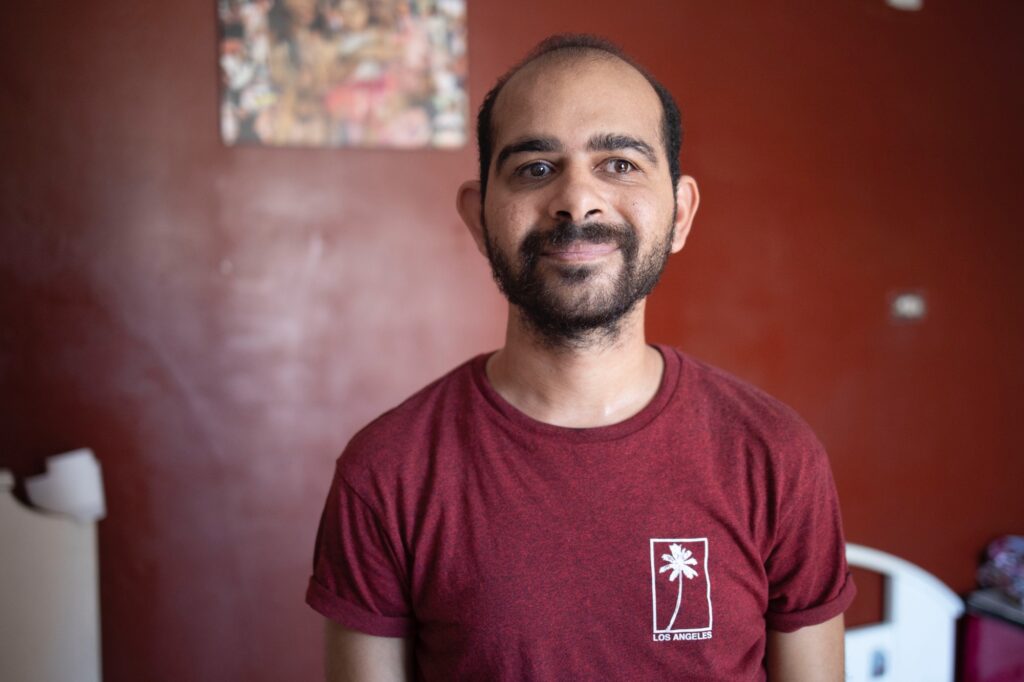
Meena Asaad, 32
Local government public relations officer and sports journalist
I’ve been blind since birth. I started working two days after finishing my senior year at the Faculty of Mass Communication at Cairo University in 2011. I was a sports journalist for a website for five years. My first salary was 500 EGP ($16), and I remember inviting my family to a delicious dinner, as we usually celebrate with food.
I was then hired at the Suez Governorate’s media department in 2013. I usually cover official visits, decisions, meetings and tours, and write press releases about them for different news entities to use. I also have a part-time job with Al-Akhbar Braille magazine; I’m responsible for the sports department. It was an extraordinary opportunity for me, as it’s the first braille magazine for the visually impaired in the Middle East.
I divide my salary in a way that helps me participate in the household expenses and save some money in the bank. I also save extra money in the winter to spend in the summer season when I usually travel and go out more.
People tend to over-help people with special needs here in Egypt. Whether out of pity, a feeling of responsibility or attempting to be kind, they usually think they should help us even if it would mean for us to come up short. Some people with special needs accept that treatment, which enforces this belief. But I don’t. I proved myself from the first day at work and performed my duties. It helped change this mindset among my colleagues.
My biggest dream is to be the first blind sports TV reporter. I have been working on it but haven’t had the chance yet. I’ll keep going until I find someone to support the idea and make my dream come true.
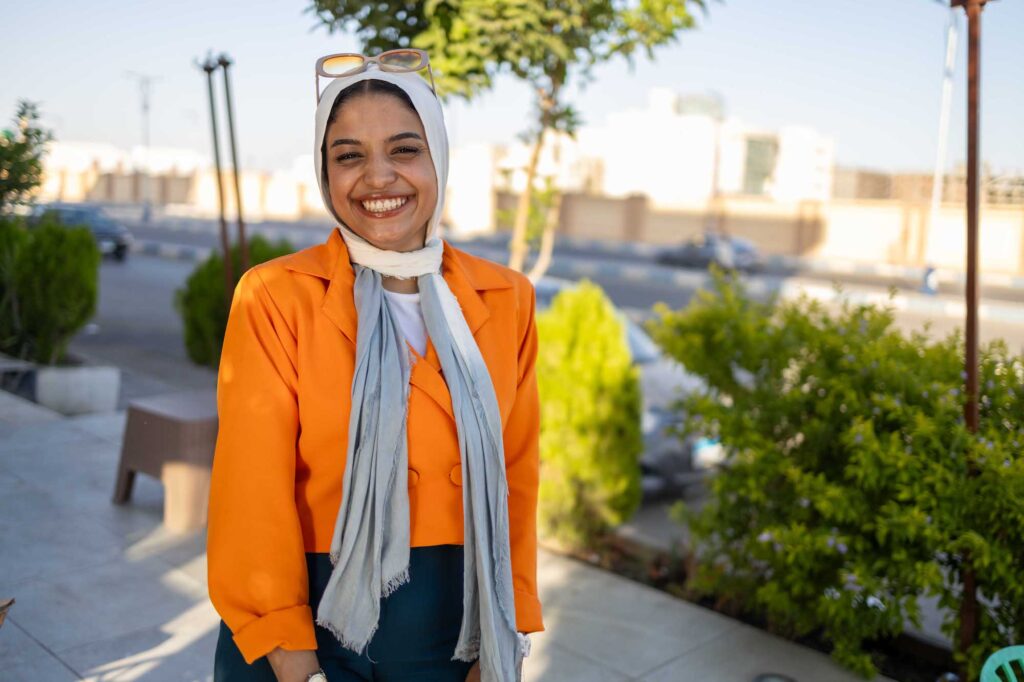
Rahma Youssef, 26
Elementary Arabic teacher
I got my first job during my first year in college in 2015. I was supervising a kids’ area with my sister, and we were responsible for managing the place. My salary was 400 EGP ($13) back then, and I remember getting my mother a gift and buying new clothes with my first paycheck, as I’m obsessed with fashion.
I never thought I would work as a teacher, but after graduation, I started doing accounting and teaching assistant duties in a private courses center for school children.
That job was overwhelming, but it inspired me to earn a diploma in education a year later. After that, I gave online Arabic classes for school students for a year during the pandemic. Then, the school where I work now had an opening for an Arabic teacher, so I applied and got the job last year.
I make 1,800 EGP ($58) per month and can’t plan anything with my salary. I spend it all by mid-month and usually borrow money from my family. Still, I love the job, as my interactions with the children have made me understand them and care more about their mental health. It is always a pleasure to befriend and teach the children.
The hardest thing about this job is when you try to work at a different pace. My supervisors care most about the schedule. They don’t accept it if I get behind for a bit to help each student fully grasp the information.
I plan on using my upcoming paychecks to understand more about psychology and make social media videos on children’s mental health. We all had traumatizing memories from our school years, and I want to help raise new generations with a stable mental state.
Read more
Sign up to keep up to date with ReThink Q.
